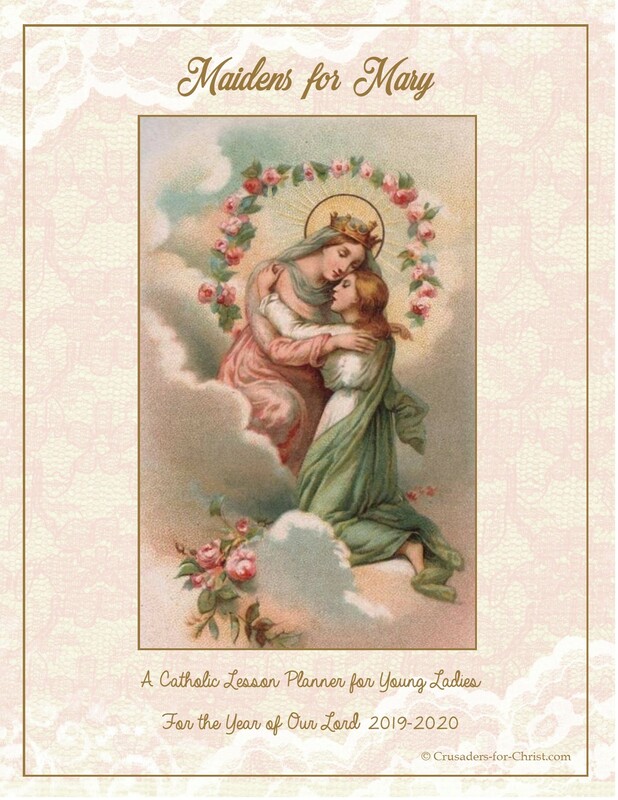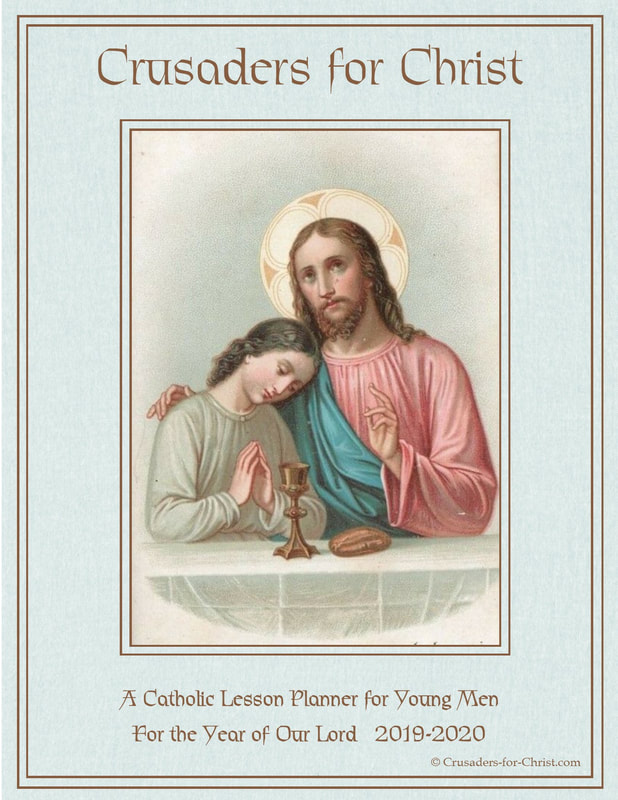
First Point.—"Man, however vast his heart may be, cannot attach himself to everything with the same ardor. Surrounded by objects which, in different degrees, have the impress of beauty, he shall find shades of difference in the attractions which hold him. Very often we cannot give a reason for our preference ; but what is certain is that we have our preferences and that love begins in us at the first moment the selection of the object is made." At the moment when we make our entrance into the life of affections we naturally love those whose age or studies or position are similar to our own; and still our heart has already made its preferences. Almost without knowing it, a choice is quickly made of one who shall be for us more than fellow-student; he shall be our friend, the confidant of our sorrows and our joys, our fears and our hopes; his memory shall not be effaced, but shall remain with us during our whole life.
Later, on our entrance into the world, a thousand objects armed with all the attractions which seduce and captivate come to knock at- the door of our heart and to ask for our preference. Jesus, on His part, with His cross in one hand and His Gospel in the other, calls us by the voice of conscience, and by the voice of His priests, by all that He has done for us, and by His titles to our love and gratitude. We must make our choice. On this choice our earthly future depends and also our eternal destiny. If the heart of man always inclines towards the most worthy object of its choice, our preference shall not be doubtful. What being is more lovable than the Saviour? But, unfortunately, instead of permitting ourselves to be guided by reason and by faith, we allow ourselves to be influenced 'by the passions, and we choose blindly. Shall you be fortunate enough to be proof, against such sad influence?
Second Point.—"But love is not satisfied by the mere act of choice, it demands devotion from the one chosen. To choose is to prefer one before all others; but to be devoted is to prefer the object of devotion even to yourself. Devotion is immolation of self to the object loved, and whoever does not go thus far does not love. We find this condition in all the affections in which virtue mingles the divine balm of her presence. It is that which inspires the mother, bending day and night over the cradle of her child; it is that which fills the heart of the soldier and prompts him to face death boldly for his country; it is that which strengthens the martyr against the threats of tyrants and gives him greatest solace in all his punishments. These are the traits of love which the world, all corrupted as it is, recognizes and admires. And if love has not had at all times an opportunity to manifest itself by noblest sacrifices, it constantly shows, however, by lesser sacrifices that it carries within it the germs which make it as strong as death, as the Sacred Scriptures attest" (Pere Lacordaire).
Is it thus that you have loved Jesus ? After having chosen you to make you His child of predilection, He has recalled you to His admirable light. He has devoted Himself to you, and as a proof of it He vowed Himself to death, and to an ignominy more frightful than death, to redeem your soul and to open heaven for you. Hence St. Paul says: "Jesus has loved me, He has delivered Himself up for me." And thus it is that all the saints have loved, by responding to His devotion with their own devotion. Listen to St. Paul: "What shall separate us from the charity of Christ? Shall it be tribulation,sufferings, hunger, or thirst? Shall it be danger, persecution, or the sword? But we are stronger than all these fears, for the sake of Him who has loved us. Yes, I am certain that neither life nor death, neither angels nor principalities, neither the present nor the future, neither strength, nor height, nor depth, nor any creature, can separate us from the charity of God, which is in Christ Our Lord." Behold what St. Paul thought and spoke, and what all the saints thought and spoke as well as he. Can you hurl the same defiance to every creature? Consult your own heart, and then answer.
Third Point.—"There still remains the third act which crowns the marvellous drama, and in which our soul is at once the theatre and the actress. After we have chosen the object of our preference, and after we have given ourselves in fullest devotion, there still remains something to be done" (Piere Lacordaire).
Union is necessary. This is the end and the limit of love in the heart of God and in the heart of the Christian. Not content with having chosen us as His well-beloved creature, with having given us grace, life, heaven, and happiness by the complete sacrifice of Himself, Jesus has wished to unite Himself to us in the closest manner. And what has He done to accomplish this? O marvellous love of a God for His creature! He began by uniting Himself to our miserable nature; He became man, as one of us; He lived our life; He has wished to dwell with us, and to find His delights in remaining with us. But this sojourn was necessarily transitory; this union of the Word in the Incarnation was His union with human nature in general. The heart of Jesus wished more, and He has done more. He has instituted the Holy Eucharist, and thereby has found the secret of eternalizing His presence among men, whom He has loved so much. He has wished to give Himself and to unite Himself to each one in particular. What love ! Can you ever be sufficiently grateful?
If you love Jesus truly, it is not enough to have chosen Him for your Friend and your King; it is not enough to be prepared for entire devotion and even to immolate yourself for Him. You should earnestly aspire to be united to Him. This union, the object of delight to the heart that loves, consists in the complete fusion of your heart with the Sacred Heart of Jesus, by the same thoughts, the same desires, and the same wishes. You should regard the things of the world—its pleasures, its honors—as He regarded them. It is necessary that you should love and desire what He has desired and loved. What union could ever exist between two hearts whose sentiments and affections were quite contrary? But because it is in the Holy Eucharist that the union with Jesus is closest and most intimate, it is necessary that you should be most anxious to be nourished by it. Indifference for this sacrament would testify your want of love. How, can you think that you love Jesus, when you have so little desire to be united to Him?
Adorable Master, Thou hast chosen me for Thy child when I was so unworthy; Thou hast devoted Thyself to my salvation in spite of the abuse I have made of Thy grace. Thou desirest to be united to me, to lift me up to Thee. I wish also to take Thee for my only inheritance, to sacrifice myself for Thee, and to remain faithful to Thee; and, by uniting myself often with Thee in the sacrament of Thy love, may I merit to be eternally united with Thee in the Kingdom of Thy glory.
Source: Short Instructions on the Feasts of the Year, Imprimatur 1897




 RSS Feed
RSS Feed